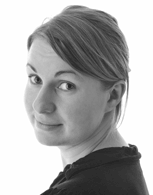Ofcom gives green light to use TV spectrum for rural broadband
Telecommunications regulator Ofcom has given the go-ahead for internet providers to use unused TV spectrum to deliver broadband to rural areas.
Telecommunications regulator Ofcom has given the go-ahead for internet providers to use unused TV spectrum to deliver broadband to rural areas.
The technology works by searching for unused areas of the airwaves or gaps called "white spaces" that exist in frequency bands that have been reserved for TV broadcasts. These white spaces are used to transmit and receive wireless signals.
The signals travel large distances and easily through walls, which makes it suitable for a wide range of consumer applications that could include rural broadband and Wi-Fi with up to twice the range of today's technology. Ofcom says the UK will be the first country in Europe to make use of white space technology in this way.
Ofcom has now completed its consultation process and is seeking Parliamentary approval to make white space devices licence exempt, which will involve a change to The Communications Act 2003. This will mean providers will not need an Ofcom licence to use the technology, as long as it does do not interfere with existing spectrum usage.
Ofcom chief executive Ed Richards said, "The solution we have devised creates the opportunity to maximise the efficient use of spectrum and opens the door to the development of a new and exciting range of consumer and business applications."
Ofcom will seek procurement of an online hosted database to ensure the devices do not interfere with existing licensed users of the spectrum. The database will receive notifications of the location of the spectrum uses on a regular basis.
The regulator is also considering using other white spaces such as radio spectrum freed up from the switchover from analogue to digital.
Ofcom expects that white space technology could be launched in the UK in 2013.







